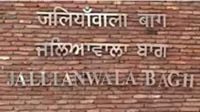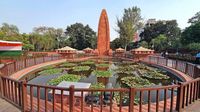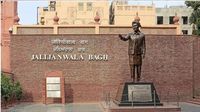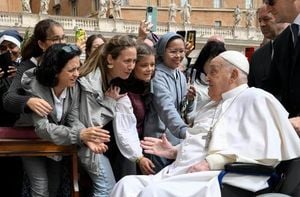On April 13, 1919, a tragic chapter in India's history unfolded at Jallianwala Bagh in Amritsar, Punjab, where British soldiers opened fire on a large gathering of unarmed Indians. This horrific event, known as the Jallianwala Bagh Massacre, marked a pivotal moment in the Indian struggle for independence and continues to resonate deeply in the hearts of Indians to this day.
The incident occurred during the Baisakhi festival, a significant celebration in Punjab, where thousands had gathered not only to celebrate but also to protest against the Rowlatt Act. This draconian law allowed the British authorities to arrest Indians without trial, leading to widespread unrest across the nation. The atmosphere was charged with anger and desperation, particularly after the arrest of two prominent leaders, Dr. Saifuddin Kitchlew and Dr. Satya Pal, which further fueled public outrage.
General Reginald Dyer, who arrived at Jallianwala Bagh with his troops, made a fateful decision. Without warning, he ordered his men to fire on the crowd, which was trapped in the enclosed garden with only one narrow entrance. The soldiers unleashed a barrage of bullets, firing approximately 1,650 rounds over the course of ten minutes. Eyewitness accounts reported that many people were trampled in the panic to escape, and others jumped into a nearby well to avoid the gunfire. The official death toll was reported as 379, but Indian sources estimated that over 1,000 people lost their lives in this massacre, including women and children.
The aftermath of the Jallianwala Bagh Massacre was immediate and profound. Mahatma Gandhi, who had initially supported the British during World War I, was deeply shaken by the brutality of the event. In response, he called for a nationwide strike and a day of mourning, urging Indians to unite against British rule. His call resonated across the country, leading to the launch of the Non-Cooperation Movement in 1920, a significant campaign aimed at boycotting British goods and institutions.
The massacre also drew international condemnation. Renowned poet Rabindranath Tagore returned his British knighthood in protest, stating, "This disproportionate severity of punishment inflicted upon the unfortunate people and method of carrying it out is without parallel in the history of civilized government." Such gestures highlighted the growing discontent among Indians and the urgent need for self-governance.
In the wake of the massacre, the British government established the Hunter Commission to investigate the incident. However, the findings were largely seen as inadequate, and General Dyer faced no real punishment for his actions, a fact that only intensified resentment towards British rule. The massacre became a rallying point for nationalists and symbolized the oppressive nature of colonialism.
One of the most notable responses to the massacre came from Udham Singh, a survivor who vowed to avenge the deaths of his fellow Indians. In 1940, Singh assassinated Michael O'Dwyer, the Lieutenant Governor of Punjab at the time of the massacre, in London. Singh's act of vengeance was seen as a testament to the enduring anger and pain caused by the Jallianwala Bagh Massacre. He was arrested immediately and later hanged, but he remains a symbol of resistance and sacrifice in the fight for India's independence.
Today, Jallianwala Bagh stands as a national memorial, preserving the memory of those who lost their lives on that fateful day. The site has been transformed into a place of remembrance, where visitors come to pay their respects and reflect on the sacrifices made for India's freedom. The walls of the memorial still bear the scars of the bullets fired on that day, serving as a haunting reminder of the brutality that occurred.
Every year, on April 13, Indians commemorate the Jallianwala Bagh Massacre, honoring the victims and reaffirming their commitment to justice and human rights. The day serves as a poignant reminder of the struggle against oppression and the importance of standing up for one's rights. It is a day to reflect on the lessons of history and to ensure that such atrocities are never repeated.
The Jallianwala Bagh Massacre not only galvanized the Indian independence movement but also highlighted the urgent need for unity among Indians, transcending religious and cultural differences. The slogan "Hindu-Muslim ki Jai" (victory to the unity of Hindus and Muslims) echoed throughout the protests, symbolizing a collective demand for freedom from colonial rule.
As we observe the anniversary of this tragic event, it is essential to remember the sacrifices made by those who fought for India's independence. The Jallianwala Bagh Massacre is not just a historical event; it is a powerful reminder of the resilience of the human spirit in the face of tyranny. The memory of those who perished continues to inspire new generations to advocate for justice, equality, and freedom.
In conclusion, the Jallianwala Bagh Massacre remains a significant milestone in India's journey toward independence. It serves as a stark reminder of the consequences of colonial oppression and the unwavering spirit of those who dared to challenge it. As we move forward, the lessons learned from this dark chapter in history must continue to guide our pursuit of justice and human rights for all.







